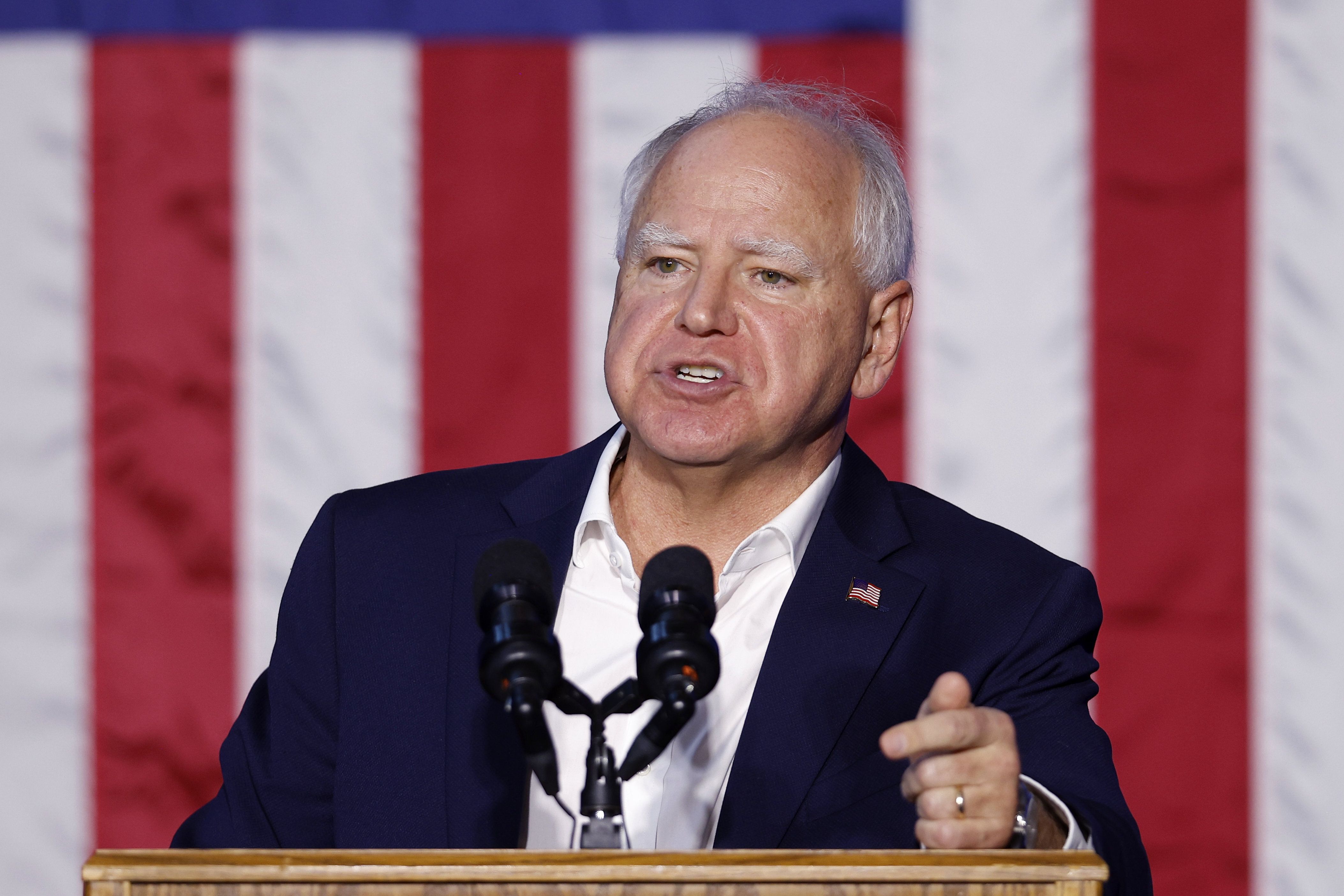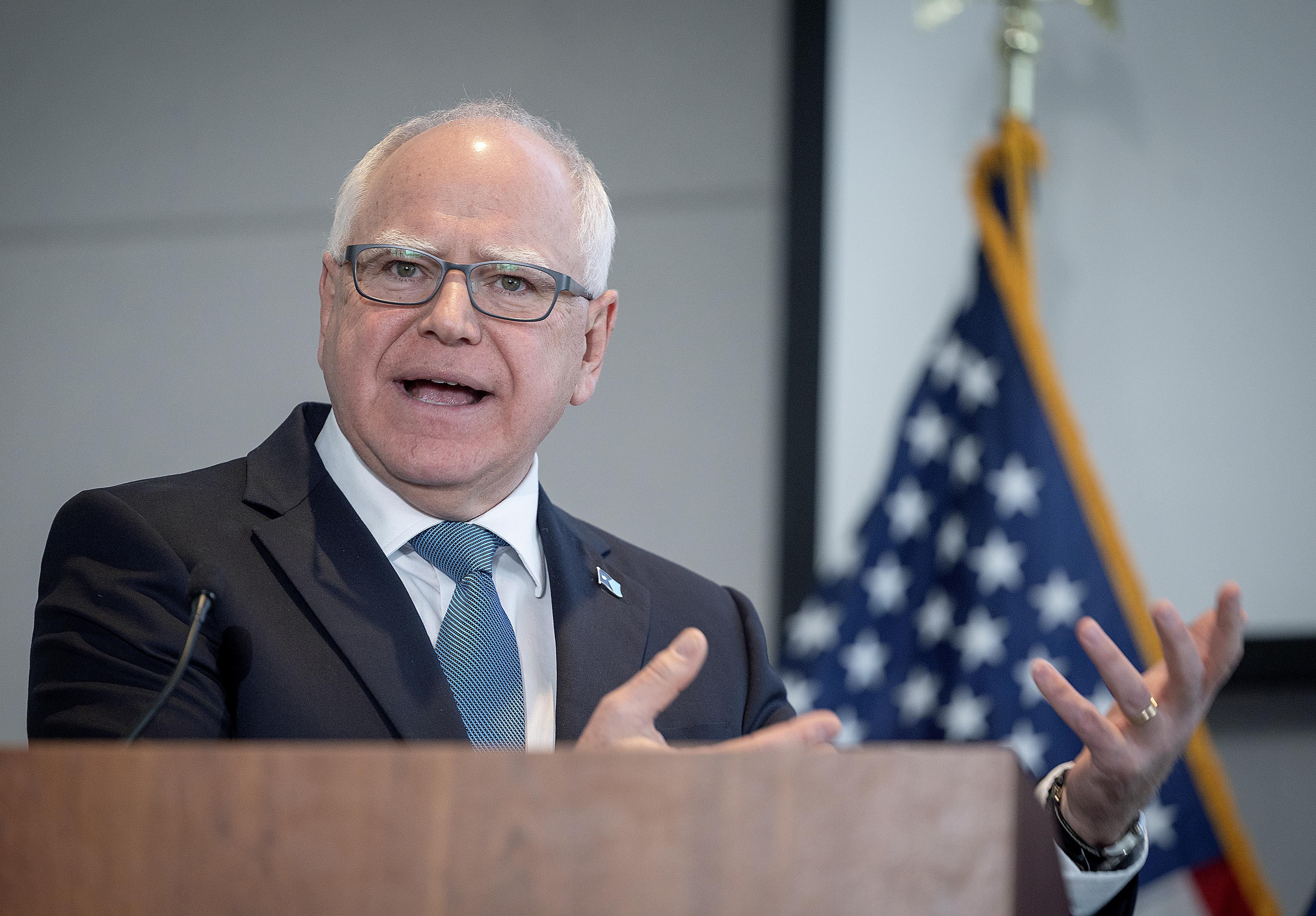Minnesota Governor Tim Walz is responding after the FBI executed a series of search warrants targeting a significant fraud operation within the state’s Housing Stabilization Services program.
The program, which is designed to help vulnerable populations such as older adults, people with disabilities, and individuals struggling with substance use disorders or mental illnesses secure housing, has been hit by a serious criminal investigation.
The fraud scheme allegedly involved five providers in the Twin Cities area who are accused of billing Medicaid for housing services they did not actually deliver.
The investigation, which has drawn widespread attention, resulted in search warrants being executed at eight locations across the region. These locations were linked to the five providers that are suspected of exploiting the system, submitting fraudulent claims for services that were never provided to those in need of housing support.
The scale of the fraud has raised alarms about the vulnerability of the Housing Stabilization Services program, which serves some of the state's most vulnerable residents.
In response to the FBI's actions, Governor Walz expressed a firm stance against fraud and criminal behavior in Minnesota. Speaking to local news outlet WCCO last month, Walz made it clear that anyone attempting to defraud the system would be caught.
"If you’re going to commit these crimes in Minnesota, you are going to get caught," he declared, reinforcing his commitment to cracking down on fraud and ensuring that the state's resources are used appropriately.
Walz has also emphasized the state's ongoing efforts to safeguard public funds, particularly in programs that assist vulnerable individuals. He pointed to new safeguards put in place to detect and prevent Medicaid fraud and stressed that these measures would help prevent such fraud in the future.

“You’re always gonna find people trying to cheat the system,” he said, acknowledging the persistence of bad actors who attempt to exploit public services. However, he is confident that the state's strengthened oversight mechanisms would prove effective in combating fraud.
The Minnesota governor also expressed disappointment that more resources were not available to address fraud in the state. He mentioned the need for more advanced technology, specifically artificial intelligence tools, that could be used to detect fraudulent activities more quickly.
Walz indicated that while the state has made progress in tackling fraud, there is still work to be done to ensure the safety and integrity of services provided to Minnesota’s most vulnerable citizens.
The scope of the investigation has alarmed both state and federal officials. Acting U.S. Attorney for Minnesota, Joe Thompson, who is overseeing the case, described the fraud problem as a significant issue that needs urgent attention.
Thompson explained that this is not the first time concerns about fraud in state programs have been raised. His predecessor, Andrew Luger, also expressed concern over the systemic vulnerabilities in Minnesota's public programs, which may have made it easier for fraudsters to exploit the system.
“Minnesota is a generous state, and I think there is a tendency to err on the side of making sure children get food, making sure people have housing stabilization,” Governor Walz explained, acknowledging the difficult balance between providing essential services and preventing abuse of the system.
While Walz defended the intentions behind the state’s social programs, he also acknowledged that the system could be exploited by malicious actors.
The Housing Stabilization Services program, which was meant to provide support to individuals struggling with homelessness, addiction, and mental illness, has been identified as especially vulnerable to fraud.

The FBI’s investigation revealed that several of the providers involved had submitted inflated or entirely fabricated claims for services not rendered. The fraudulent billing is believed to have cost taxpayers millions of dollars in lost funds.
As the investigation unfolds, public backlash against the Walz administration has been swift. Republican lawmakers have seized on the issue, criticizing the administration for failing to prevent such fraud from taking place.
Representative Kristin Robbins, a Republican from Maple Grove and chair of the House Fraud and State Agency Oversight Committee, called the incident an “enormous failure” by Walz’s administration to safeguard taxpayer dollars.
Robbins argued that the state's efforts to expand Medicaid services without adequate oversight had created an environment ripe for exploitation.
“This follows the same pattern the Fraud Committee has been highlighting for months: Minnesota expands unregulated Medicaid services, and fraudsters jump in to exploit lax oversight by the Department of Human Services (DHS) to steal millions from taxpayers and the poor,” Robbins said in a statement.
The criticism from Republicans has intensified the political battle over the state’s handling of Medicaid and other social welfare programs.
The controversy surrounding the fraud scheme is not the first instance of criminal activity connected to state programs. Earlier this year, the state faced scrutiny over the massive "Feeding Our Future" fraud case, which involved fraudulent claims for food assistance services.
A related investigation into Minnesota autism centers also revealed additional fraud in the state’s healthcare programs. These scandals have led to increased calls for greater transparency and accountability in how state agencies oversee and manage public funds.

Despite the criticism, Governor Walz has doubled down on his commitment to hold those responsible for the fraud accountable. "We have the tools, we have the ability to stop these bad actors, and we’re going to use everything we can to make sure they’re held accountable," Walz said.
He also reiterated his support for law enforcement’s role in investigating and prosecuting fraud cases, emphasizing the need for collaboration between state agencies and federal investigators.
Walz’s leadership has been put to the test as Minnesota grapples with these ongoing issues of fraud within its social programs. While the governor has faced criticism from his political opponents, he has also received praise for his swift response to the crisis and his pledge to strengthen oversight moving forward.
The investigation into the Housing Stabilization Services program is still ongoing, and more details may emerge in the coming weeks as authorities work to determine the full extent of the fraud and identify all those involved.
The FBI’s involvement highlights the seriousness of the situation, and federal investigators have vowed to pursue justice for the victims of the fraud.
In the wake of these developments, Governor Walz has vowed to take action to prevent future fraud and to protect the integrity of state programs that serve Minnesota’s most vulnerable residents.
He has called for continued cooperation with law enforcement and a broader effort to ensure that taxpayer dollars are not being wasted or misappropriated.
"We will continue to work tirelessly to ensure that those who commit fraud are held accountable and that the services intended to help people in need are protected," Walz said in a statement.

While the fraud scandal continues to unfold, the Walz administration’s response will likely shape public opinion in the coming months. As Minnesota faces the dual challenges of managing social programs and preventing fraud, the pressure is on for state officials to implement stronger safeguards, increase oversight, and restore public trust in the system.
Governor Walz’s efforts to address the crisis are expected to have long-lasting implications for the state’s social welfare programs, and the lessons learned from this case may prompt broader changes in how Medicaid and other services are administered.
Ultimately, the outcome of this investigation could determine the future direction of social services in Minnesota, with lessons that may be applicable to other states facing similar challenges in managing public funds and services.




